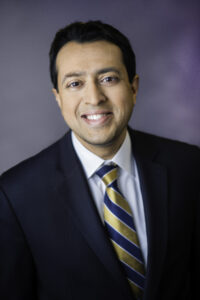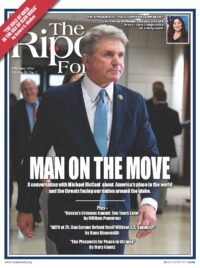 Obesity is the most important health challenge facing America today.
Obesity is the most important health challenge facing America today.
Even beyond its contribution to lower life expectancy, multiple chronic conditions, suboptimal health, racial and geographic disparities, and staggering health care costs, it also risks endangering the American Dream.
More than a decade ago, in a seminal Bipartisan Policy Center report entitled Lots to Lose, former cabinet secretaries Mike Leavitt, Dan Glickman, Ann Veneman, and Donna Shalala wrote “the impacts of America’s obesity epidemic jeopardize our global competitiveness and national security, directly undermining our ability to cut the federal debt, prepare and sustain a highly productive workforce, maintain our military strength, and compete effectively in the global economy.”
These words hold true today, and the statistics are undeniable. According to researchers from the Milken Institute, the economic and social costs of obesity in America reached a staggering $1.4 trillion in 2018, or 6.76 percent of the GDP. In addition, 1 in 3 young adults do not meet weight requirements for military service, and 19 percent of active-duty service members have obesity, elevating their risk of musculoskeletal injuries by 33 percent.
Obesity rates have skyrocketed from 13 percent in the early 1960s to over 40 percent for adults today. While obesity is undoubtedly a complex chronic disease influenced by social, environmental, genetic, and behavioral factors, in addition to poverty, the question arises: how have rates more than tripled in just two generations? The answer largely stems from the widespread availability and significant portion sizes of inexpensive, ultra-processed, and calorie-dense food consumed by the American public. This occurs in an environment where technology and lifestyles do not adequately support physical activity.
So, what will it take to solve the obesity crisis: increased personal responsibility or policy, systems, and environmental changes? The answer lies in both, as it is precisely the changes implemented through the latter that make the former more achievable. As highlighted in my book Prevention First: Policymaking for a Healthier America (2019), citing the work of Duke University professor Dr. Kelly Brownell, the lack of emphasis on changing environmental conditions has made it too difficult for Americans to exercise personal responsibility and freely make choices they would have preferred if more options were available. It’s time to make the healthy choice the easy choice for Americans.
What will it take to solve the obesity crisis: increased personal responsibility or policy, systems, and environmental changes? The answer lies in both, as it is precisely the changes implemented through the latter that make the former more achievable.
Education plays a crucial role. It is imperative that more Americans understand and adhere to the Dietary Guidelines for Americans and the Physical Activity Guidelines for Americans. A national nutrition education campaign, involving both the public and private sectors, should be initiated, featuring inspiring public figures who advocate for a healthy diet and provide guidance on cooking and preparing healthy foods. Menu labeling efforts, as well as front-of-package nutrition labeling, will empower Americans to make more health-conscious decisions.
Health care also has a role. Health care professionals, particularly physicians, should receive more extensive nutrition training and receive adequate reimbursement for screening, brief intervention, and referral for obesity treatment. It is essential that more Americans with obesity have access to intensive behavioral counseling, and overweight individuals with prediabetes should be connected to community-based diabetes prevention programs. Novel obesity medications, such as Wegovy, when combined with lifestyle modifications, offer new hope for millions of Americans seeking significant weight loss and the reduction of complications associated with obesity-related conditions; however, further long-term studies are necessary. Congress should move swiftly to remove Medicare’s prohibition on coverage of weight loss medications, which will lead private payers to follow suit.
Most importantly, addressing obesity requires a transformation in our food environment, focusing on increasing the affordability and accessibility of nutritious foods while reducing the availability of unhealthy foods.
Working with the food industry, we need to examine public policies that contribute to current consumption patterns. This involves assessing crop subsidies within the farm bill compared to incentives for farmers to grow fruits and vegetables. It encompasses healthy food financing initiatives to bring grocery stores to underserved areas and provide nutritious options in corner stores. Additionally, it involves closing tax loopholes and eliminating business cost deductions related to advertising of unhealthy food and beverages to children. Collaboration extends to encouraging the industry to voluntarily reduce added sugar in food products, while also considering taxes on sugar-sweetened beverages, which have been shown to reduce consumption. Furthermore, it includes implementing interventions for healthy eating and physical activity in schools.
Federal feeding programs such as SNAP, WIC, and school meal and child nutrition programs should be reauthorized. Policymakers should debate whether to make SNAP more like WIC to limit purchases to healthy foods. States, serving as the laboratories of democracy, should, at the very least, possess the capability to pilot programs that provide incentives for healthy food and discourage unhealthy food.
Do we have evidence that these steps might reduce obesity in America? We do, but these efforts need to be sustained. Huntington, WV, reduced its obesity rate from 45 percent to 32 percent within a decade; Montana, Ohio, New York, and Minnesota also lowered their respective obesity rates in the mid-2010s. The common denominator in all these examples included local schools, grocery stores, health care entities, and other stakeholders forming coalitions to increase the availability of healthier food options throughout the community.
Tackling obesity demands persistent, bipartisan commitment from policymakers.
On a more national scale, the mid-2010s saw a 43 percent drop in the obesity rates among 2- to 5-year old children over the previous decade, though rates have since crept back up. More recently, a national study found a small but significant decline in obesity among children ages 5-18 after the implementation of the Healthy, Hunger-Free Kids Act of 2010, which introduced nutrition standards for school meals.
Tackling obesity demands persistent, bipartisan commitment from policymakers. Fifty years after President Nixon convened the first White House Conference on Food, Nutrition, and Health, President Biden appropriately hosted a second conference in 2022 and unveiled a plan to reduce hunger and obesity in America. The 2024 presidential candidates should openly articulate their strategies for reducing obesity in America. Congress should also consider launching a bipartisan commission to identify public policies that facilitate healthier food choices for Americans.
We need all Americans to come together and call out the obesity crisis for what it is: one of the 21st century’s greatest challenges, but one that can be overcome.
Anand Parekh, MD, MPH is the chief medical advisor of the Bipartisan Policy Center, and former deputy assistant secretary of health at the U.S. Department of Health & Human Services.




